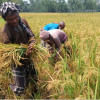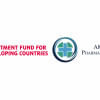US firms want to invest more in agri, services sectors

Businesses of the US want to invest more in agriculture and service sectors in Bangladesh as the country is expected to be the 9th largest consumer market globally by 2030, stated a visiting American business delegation yesterday.
Urging the government to offer tax holiday facilities in the two sectors, the delegation wanted to know about the prevailing facilities for investment in Bangladesh.
The query was made at a meeting between the delegation, led by Steven Kobos, president and chief executive officer of Excelerate Energy, and Finance Minister AHM Mustafa Kamal at the secretariat office in Dhaka.
The delegation included Atul Keshap, president of the US-Bangladesh Business Council, and Kevin Roepke, head of South Asia of the US Soybean Export Council.
"We have informed them that the rate of return for investment in Bangladesh is high," Kamal told journalists after the meeting.
He said to have assured ensuring the facilities if the US investors chose Bangladesh as an investment destination.
"Besides, we will consider providing more incentives on a case-to-case basis depending on the nature of investments in the future," he added.
A representative from the National Board of Revenue informed the delegation of tax facilities on investments, said Kamal.
"They also sought government support to invest in a digital payment system," said Sharifa Khan, secretary to Economic Relation Division.
Kamal was asked about a recent survey conducted by the Japan External Trade Organisation which found that about 71 percent of Japanese investors were dissatisfied with the general business environment in Bangladesh.
"What have the Japanese companies invested in…? They have only one (major investment), that is tobacco manufacturing," responded the finance minister.
He was also asked about another recent survey which found some 70 percent of its respondents of the opinion that Bangladesh's economy was heading in the wrong direction.
Anyone who says that the economy is not in good shape does not understand the economy that well, said Kamal, adding, "Now the whole world recognises that Bangladesh is a role model."
The survey was jointly conducted by The Asia Foundation in Bangladesh and the Brac Institute of Governance and Development.
"How well off does the economy further need to be?" he asked.
On the ongoing high inflation, Kamal said, "When we took charge (came to office), how much was inflation? It was 12.3 percent. From there, our inflation is now 7.5 percent even in this situation."
On why prices of goods were increasing, he said, "The Russia-Ukraine war has started, no one knows when it will end. How long will you run the economy as planned in this uncertainty?
"Still, our economy is doing very well. Everyone says Bangladesh's economy is doing well," he added.

 For all latest news, follow The Daily Star's Google News channel.
For all latest news, follow The Daily Star's Google News channel. 








Comments